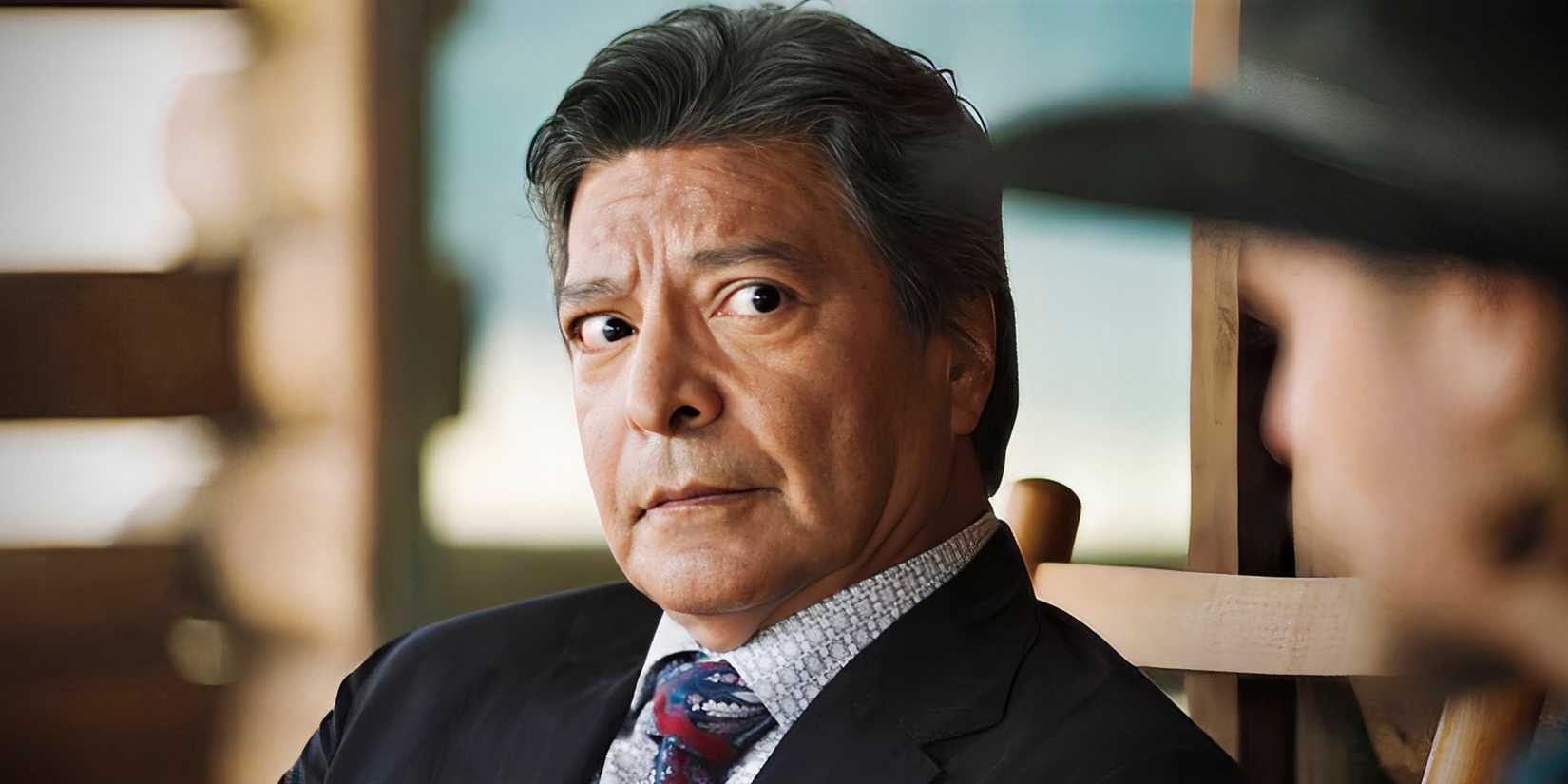In the vast and rugged landscape of Yellowstone, where family legacy, land ownership, and cultural identity collide, few characters carry as much enigmatic weight as Thomas Rainwater. Played brilliantly by Gil Birmingham, Rainwater entered the series as a poised and powerful counterforce to John Dutton, a man equally determined to protect the land but from an entirely different perspective. While Sheridan has fleshed out the family histories of the Duttons across multiple generations, Rainwater’s own journey remains surprisingly vague, and this omission has become one of the show’s most glaring narrative gaps. The lack of backstory for such a pivotal character is both a missed opportunity and a deliberate choice, yet it leaves the door wide open for future storytelling. Sheridan, with his ongoing expansion of the Yellowstone universe, has every tool at his disposal to correct this and give Rainwater the fully developed narrative he deserves.
What we know about Thomas Rainwater is tantalizing but incomplete. He was raised away from the reservation, never knowing of his true heritage until his late teens when he discovered that he was adopted. Believing for most of his young life that he was of Mexican descent, he suddenly learned that he was, in fact, a member of the Broken Rock Indian Reservation. That revelation not only reshaped his sense of identity but set him on a path toward leadership. Rainwater’s education at Harvard and his time in corporate America, particularly in mergers and acquisitions, provided him with the sharp mind and strategic discipline that he would later bring to the table in his battles against John Dutton. Yet all of this is delivered in fragments, quick lines of dialogue, and hints scattered across a handful of episodes. We never truly see the emotional turmoil of his upbringing, the way he grappled with discovering his heritage, or the relationships and experiences that turned him into the ambitious tribal leader who commands so much respect and fear.
The show has teased us with glimpses that hint at more. Rainwater’s scars from a tribal ritual, for instance, are mentioned but never explored. Were they earned during a rite of passage, or do they point to an even deeper spiritual journey that shaped his worldview? Similarly, his political savvy and ability to inspire loyalty within his community suggest years of training, resilience, and cultural reawakening. Unfortunately, Sheridan has left these elements in the shadows while prioritizing the Dutton family’s sprawling saga. This creative choice has often frustrated fans, many of whom believe Rainwater could have been the perfect mirror image of John Dutton: a man equally driven by legacy and survival, but grounded in a cultural history too often erased from mainstream storytelling.
The good news is that Taylor Sheridan still has the chance to fix this. With 1923 introducing Teonna Rainwater, a young woman who endured horrifying abuse in a residential school, Sheridan planted a seed that could very well tie into Thomas’s lineage. If Teonna is Thomas’s grandmother or another close ancestor, then her story of survival and reclamation could become the missing link that connects his determination to fight for the Broken Rock tribe with the generational trauma of his family. Imagine a storyline where Rainwater reflects on Teonna’s courage, drawing strength from her past while charting his own future. This would not only enrich his character but also solidify Sheridan’s ongoing exploration of how history, both brutal and inspiring, shapes the present.
Another avenue lies in Sheridan’s upcoming spin-offs. Y: Marshals is confirmed to feature Rainwater, and this show could finally provide the depth fans have been demanding. With Kayce Dutton stepping into a new role as a U.S. Marshal, Rainwater’s presence could be used to explore not only contemporary battles but also moments from his past that inform his present-day actions. Flashbacks to his adoption, his time at Harvard, or his earliest encounters with tribal elders could all fit seamlessly into a spin-off format without disrupting the main Yellowstone storyline.
There is also the possibility of an entirely new series or limited mini-series dedicated to Rainwater’s backstory. Sheridan has proven with 1883 and 1923 that he’s not afraid to branch off into different time periods and perspectives. A Rainwater-focused story could bridge the gap between those historical prequels and the modern-day Yellowstone universe. By showing audiences how a boy raised outside his culture came to embrace it with such conviction, Sheridan could craft a deeply emotional and culturally resonant tale that elevates the entire franchise.
What makes Rainwater’s untold story so compelling is that it embodies one of the central themes of Yellowstone: the struggle for belonging and identity in a world defined by power, land, and legacy. John Dutton clings to his ranch because it represents his family’s history and survival, while Rainwater fights because the land represents something even more profound: a culture and people who were nearly erased, yet refuse to be forgotten. By giving Rainwater’s backstory the attention it deserves, Sheridan could balance the scales of the narrative, ensuring that the Indigenous perspective is treated with the same care and depth as the Dutton legacy.
Critics and fans alike have voiced their frustration over Rainwater’s sidelining in later seasons. Once poised as John Dutton’s greatest rival, Rainwater too often fades into the background, his potential squandered while other characters receive lengthy arcs. This has led to passionate discussions on fan forums, with many arguing that Sheridan owes Rainwater’s character the same attention given to Beth, Rip, or even side characters like Jimmy. After all, Rainwater is not only a formidable opponent but also a symbol of resilience and cultural pride, and leaving his story unfinished risks undermining the richness of the Yellowstone universe.